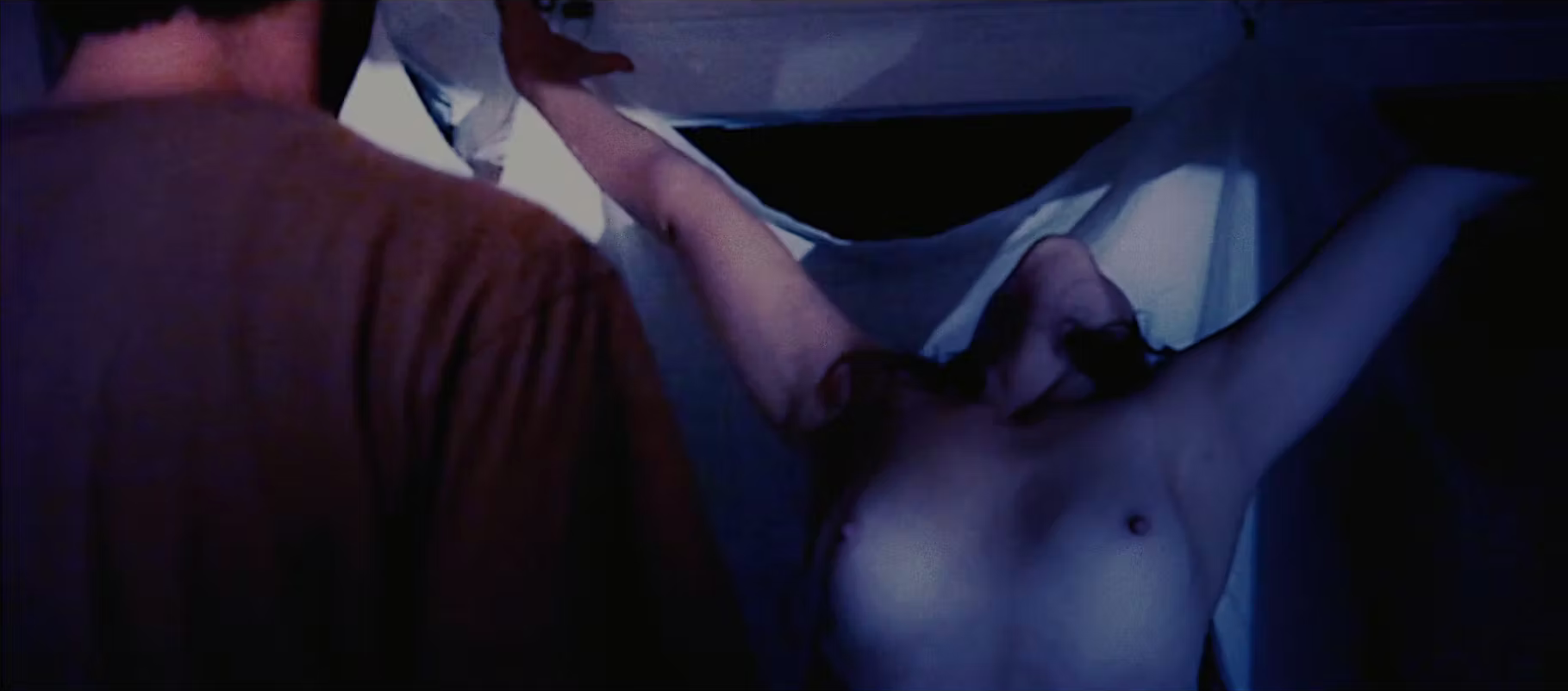Review of John Ledbetter & April Day’s short film Dog of God
It all boils down to “Snacks” when a pimp, a Brazilian sex-slave, and a bored young man cross paths after a wrong phone call is placed in the indie film produced by Father Neptune Pictures, Dog of God. An antagonizing Russian is looking for a man named Milo in this classic case of mistaken identity that takes audiences from darkness into the light and then back again. With impactful jump cuts and handheld camera shots, the short film, Dog of God, like the movie’s title, becomes an anagram itself, with characters flipped from right to left and left to right.
An answering machine plays an early role in the movie, and, even in today’s world or voicemail and caller ID, can still illicit a certain level of fear, when the person on the other end is a threatening stranger. There’s a voice-of-God quality about using this technique that creates circumstances impossible to escape. Even in the Bible, dogs are the messengers of God, with more than forty references to canine in the scriptures. Produced by April Day and John Ledbetter, and directed by Ledbetter, technology stars and serves more as creepy interruptions than ways to entertain—the old-fashioned telephone ring meant to jar, the aforementioned answering machine, and TV sets reminiscent of the years of rabbit ears in every home, with their faint images and electric snow. Set in the present, these anachronisms add to the mystery and suspense Ledbetter and the filmmakers are trying to achieve by putting their protagonist in immediate danger. At the same time, Spanish lessons from the 1950s over monolithic headphones bring an air of lightness and comedy. Immediately, the audience is transported, flipped around once again, adding texture to the filmmaking process. One moment we’re in a location reminiscent of Casablanca, while the next shot takes us to a modern day, red-lighted hallway signifying danger.
Surprising and creative transitions between the moon and a dinner plate reveal a strong sophistication to the direction and editing, without showing off or drawing attention to themselves. Cinematography fluctuates between natural lighting, harsh brightness, cuts to black, and silhouettes painted amongst the dark. Even blue skies yield to dark clouds. The score is thankfully silent when it needs to be, yet subtle when it supports a scene; the acoustic guitar riffs are a surprising, but inspired choice. The acting can be both forced and subtle, an anagram in and of itself. Subtitles are also a nice touch when the Brazilian sex-slave is introduced, lending credibility and more intrigue. In many ways, she steals the show. “I’ll make it darker for you,” she says in one scene.
With a running time of thirty-four minutes, Dog of God shows us all what happens when boredom gets the best of us. “Like life,” Evan says, “these people gotta live...” What’s real? What’s a game? Will the “big” win out over the “little” or will the less powerful Evan Snacks outsmart everyone and survive. His life versus his existence—in the end, Evan must decide.
Michael J. Soloway grew up eating oranges, catching lizards, and listening to the gasp of tennis ball cans being opened in south Florida. He received his Masters Degree in Creative Writing from Wilkes University and will earn his MFA in November. In addition, Michael has served as managing editor of more than a dozen nonprofit magazines and just finished his first memoir Share the Chameleon, about attempting to break his family’s cycle of abuse, as he becomes a father for the first time in his 40s. Brevity Magazine published Michael’s short essay, “Introducing Mother Nature,” in 2012. His work has also appeared in Red Fez, Pithead Chapel, Serving House: A Journal of Literary Arts, and Under the Gum Tree magazines. Michael’s nonfiction essay “Sticks and Stones,” about his grandmother’s slide into dementia, has been nominated for Sundress Publication’s Best of the Net Anthology. Also an accomplished playwright, Michael’s first 10-minute play, “I Love You Lynn Swann,” was produced by the Pittsburgh New Works Festival this fall.

